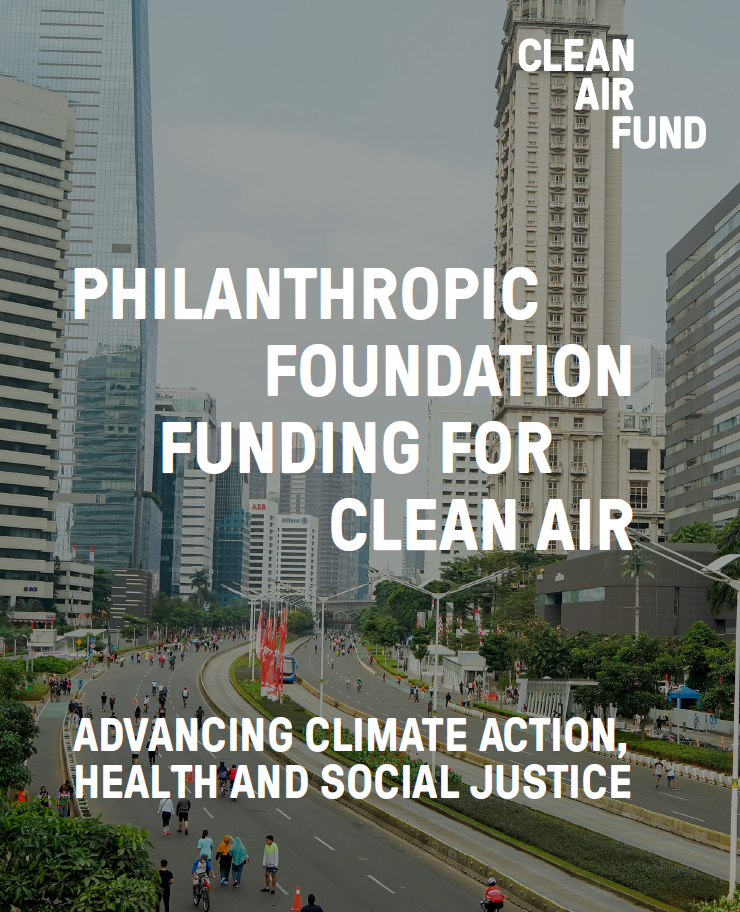Ministers of Health convene annually in Geneva at the World Health Assembly (WHA) to decide on the priorities, programmes and budget of the World Health Organisation (WHO). WHA77 took place from 27 May-1 June 2024 and adopted a new resolution on climate and health, co-sponsored by 37 governments.
The resolution asks governments to ensure high-level attention is given to climate and health, integrate climate data into health decision-making and mobilise additional resources. Clean Air Fund welcomes the recognition that clean air and climate action are vital to protect health.
The WHO and the Government of Colombia also announced the second Global Conference on Air Pollution and Health at a side event hosted by the Global Climate and Health Alliance and Clean Air Fund. The ‘global conference on air pollution and health: accelerating action for clean air, clean energy access and climate mitigation‘ will take place in Cartagena, Colombia on 25-27 March 2025, paving the way to raise air pollution as a global health priority.
Air pollution to be a higher priority for WHO in 2025-28
Air pollution is specifically highlighted in the new WHO General Programme of Work (GPW14) as an area “requiring sharper focus”. This should mean the WHO will prioritise enhancing decision-making and resources for clean air as a key public good for health.
Both GPW14 and the WHA77 climate resolution recognise climate change as one of the greatest health challenges of our time, increasing the burden of disease and worsening health inequalities, as it hits the most vulnerable groups hardest. The resolution echoes the urgency of the Intergovernmental Panel on Climate Change (IPCC) in recognising that “any further delay in concerted anticipatory global action on adaptation and mitigation will miss a brief and rapidly closing window of opportunity to secure a liveable and sustainable future for all”.
Following the first-ever dedicated Health Day at COP28 in Dubai, the WHA resolution brings attention to climate and health and highlights the lack of financing and investment undermining efforts to address climate change. The resolution explicitly mandates the WHO to develop a Global Plan of Action on climate and health by WHA78 in May 2025.
Momentum growing, but governments must step up action and funding
The WHA measure also follows a resolution approved at the UN Environment Assembly in February 2024, which called on governments to set targets and implement policies to reach the air quality guideline levels recommended by WHO.
Clean Air Fund CEO Jane Burston said, “Governments now need to match words with action. Ministers of Health need to work alongside their Ministerial colleagues to mandate polluting sectors to cut emissions and develop health-centred commitments to present at COP29, as well as at the second WHO Global Conference on Air Pollution and Health next spring.”
WHO will need additional resources to meet governments’ growing demand for support for clean air and climate action. Efforts to tackle air pollution remain chronically underfunded, receiving only 1% of global development funding in recent years. National leaders and financing institutions at the forthcoming G20 and COP29 meetings will focus on climate financing, so we urge them to deliver their WHA and UNEA commitments with clean air action and financing.
Jane Burston
*Panel of speakers at the Global Climate and Health Alliance (GCHA) and Clean Air Fund hosted event “Clearing the air to accelerate action on climate and health”. The event was moderated by Jeni Miller (GHCA), and included Ms Heather Adair-Rohani, Acting Unit Head Air Quality, Energy and Health at WHO, Dr Sultani Matendechero, Deputy Director General at the Ministry of Health Kenya, Dr Marina Romanello, Executive Director of the Lancet Countdown, Mr. Jaime H Urrego, Vice Minister of Public Health and Service Provision, Ministry of Health and Social Protection of Colombia, Dr Martin Muchangi, Director for Population Health and Environment at Amref, and the Clean Air Fund’s Ms Nina Renshaw, Head of Health.
See more

